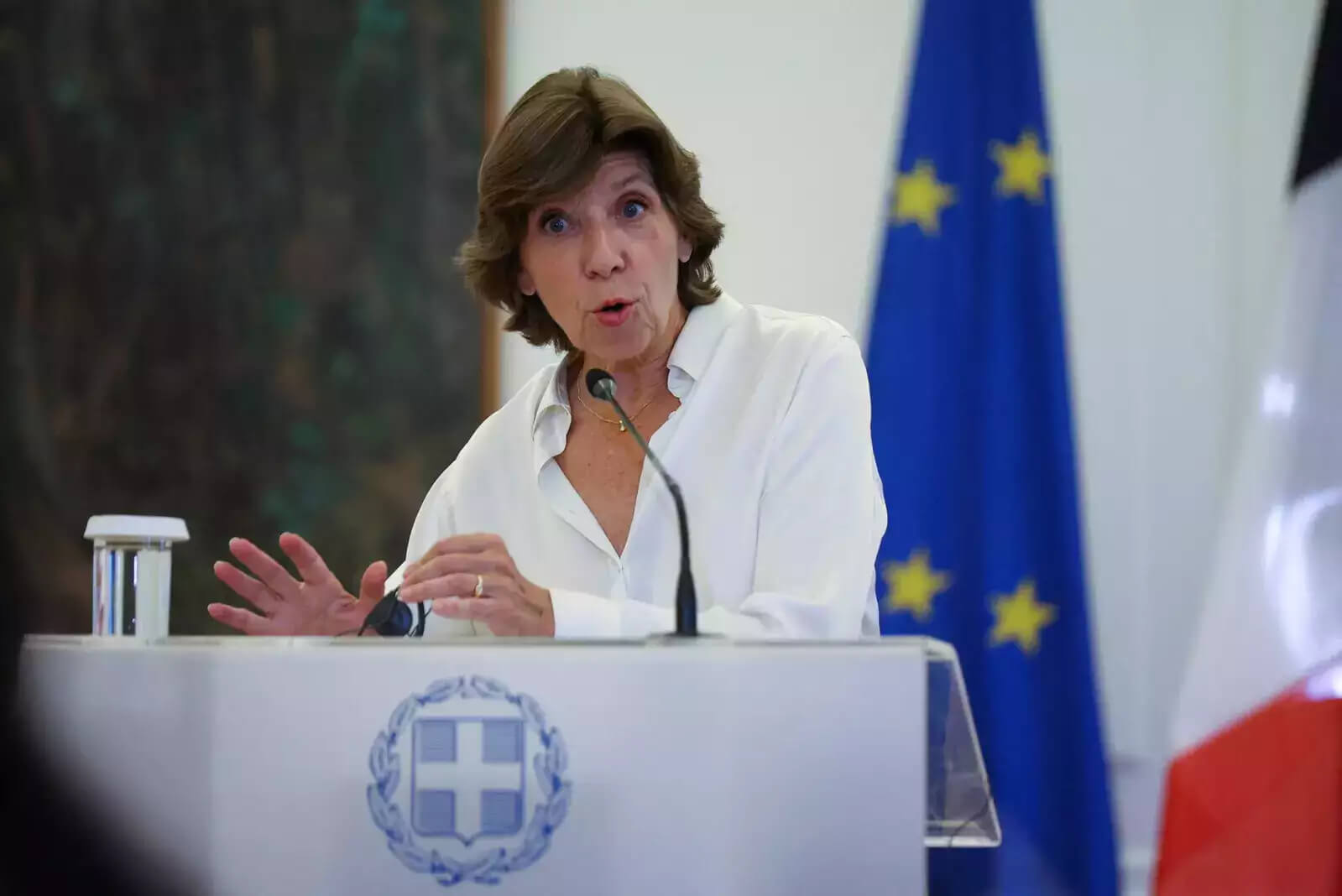Despite their differences over fishing rights, the Northern Ireland Protocol, and post-Brexit trade ties and regulations, the French Foreign Ministry on Sunday stood behind the British government in rubbishing Russia’s claims that the United Kingdom (UK) was involved in explosions at the Nord Stream gas pipelines last month and Saturday’s attack in Crimea, describing the accusations as “utterly baseless and supported by no tangible evidence.”
A statement released by the French foreign ministry denounced Russia’s attempt to “disguise reality and make wild and outrageous allegations to distract from its own, sole responsibility in its war of aggression against Ukraine.”
It noted that Russia “cannot duck its responsibility for the crimes committed in Ukraine over the last eight months,” which it emphasised are “widely and robustly documented.”
French Prime Minister Elisabeth Borne, too, raised concerns about the credibility of the Russian government’s claims. She said, “There is an investigation underway and I give no credence to what was said this morning.”
New from Maria Zakharova. This will rankle British diplomats more, as the British UN representative attacked Russia recently for pushing bioweapons disinformation in the UNSC. pic.twitter.com/y1W5lEOk9H
— Samuel Ramani (@SamRamani2) October 29, 2022
The Russian Defence Ministry claimed on Saturday that British naval experts had played a role in the explosions in the Nord Stream gas pipelines in the Baltic Sea on 26 September.
Russian Foreign Ministry spokesperson Maria Zakharova said that Moscow would seek a reaction from the United Nations Security Council.
Russian officials also alleged that the UK had helped Ukraine orchestrate an attack on the Crimean city of Sevastopol on Saturday, following which it suspended the Black Sea Grain Initiative brokered by Turkey and the United Nations (UN) for “an indefinite period.”
The Russian Defence Ministry declared that the attacks targeted its Black Sea Fleet, which was deployed to secure “the grain corridor within the international initiative to export agricultural products from Ukrainian ports.”
Mikhail Razvozhayev, a Russia-appointed administrator of the city, said Saturday’s incident was the “most massive” attack on the peninsula.
Russian state-owned media outlet TASS reported that nine drones and seven autonomous marine unmanned vehicles” were involved in Saturday’s attack. While Moscow claimed that its security forces largely defended the attack and destroyed “all air targets”, it admitted that the incident had caused minor damage to a minesweeper.
Ships of the Black Sea Fleet repel an UAV attack in the waters of the Sevastopol Bay, objects in the city were not hit, the governor said. pic.twitter.com/uYNnESmapc
— Sprinter Monitor (@SprinterMonitor) October 29, 2022
The Ministry said, “The preparation of this terrorist act and the training of servicemen of the Ukrainian 73rd Special Centre for Naval Operations were carried out under the guidance of British specialists located in the town of Ochakiv.”
Refuting the allegations, the British Defence Ministry said that Russia’s “false claims of an epic scale” were an attempt to “detract from their disastrous handling of the illegal invasion of Ukraine.” It added, “This invented story, says more about arguments going on inside the Russian government than it does about the West.”
The UK also vowed to work with partners to ensure that such “lies cannot prosper.”
To detract from their disastrous handling of the illegal invasion of Ukraine, the Russian Ministry of Defence is resorting to peddling false claims of an epic scale
— Ministry of Defence 🇬🇧 (@DefenceHQ) October 29, 2022
This invented story, says more about arguments going on inside the Russian Government than it does about the west
On 26 September, there was a sharp drop in the pressure in Nord Stream 1 and Nord Stream 2 gas pipelines that run from Russia to Germany. It is considered “Russia’s most important energy corridor,” as it has a capacity of 110 billion cubic metres – over half of Russia’s gas export amount. The first phase, Nord Stream 1, has been operational for 11 years. Meanwhile, Nord Stream 2’s commercial operations had not begun.
Sweden and Denmark confirmed that the drop resulted from a series of explosions that caused leaks in the pipelines and rendered the pipelines unusable. NATO Secretary-General Jens Stoltenberg said that the incident was an act of “sabotage.”
While Western officials have hinted that Russia orchestrated the explosions, the Kremlin has dismissed the allegations as “stupid” and instead highlighted that the United States was motivated to disrupt the pipelines in its bid to increase its export of Liquified Natural Gas to Europe.

